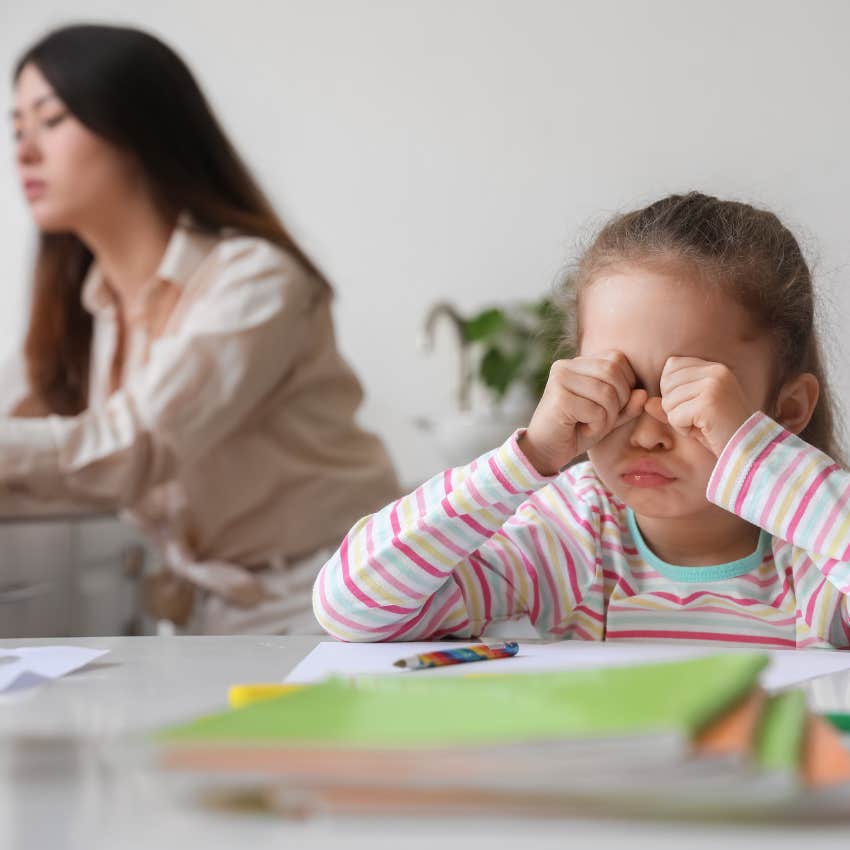If You Fall Into One Of These 10 Parenting Types, Prepare To Be Judged
Other parents might be secretly complaining about you on the playground.
 Keira Burton | Canva
Keira Burton | Canva We've all been there. Watching horrified as some oblivious parent lets their kid run helter-skelter all over a store, pulling things off shelves, bashing into other customers, and interrupting conversations of other adults, we glare at the kid. We throw dirty looks at the parent.
Nothing seems to wake them up to get back to parenting their kid. Not even the clerk asking the parent to stay with their child brings them back into parenthood.
If you fall into one of these parenting types, prepare to be judged:
1. The oblivious parent
The mom who is too busy chatting over coffee to notice her son has pretty much beaten up every kid at the playground.
2. The justifying parent
 fizkes / Shutterstock
fizkes / Shutterstock
The father who consistently counters any kind of feedback on his kid with "Ah, he's just a kid" or "man, I was just like that when I was little." We don't care! Your kid is acting like a jerk, and now we know where he gets it from.
Research suggests that the 'justifying parent style,' often associated with authoritative parenting, is generally judged favorably, especially when compared to authoritarian, permissive, or neglectful styles. Authoritative parenting, characterized by responsiveness and demandingness, is often seen as the most beneficial for children's development.
3. The moody parent
This parent is the one who snaps at their kid from across the room, and then tries to smooth it over with demands for hugs and kisses to make it look like they didn't just bark at their baby.
4. The show-off parent
Yes, we can see that your 10-month-old can count to 10 on their own. Yes, we can see your two-year-old is no longer in diapers. Yes, we can hear your child reciting Shakespeare from the monkey bars. Good for you. We have no desire to work that hard to get our kids to outperform yours.
The 'show off parenting style' is characterized by a focus on material possessions, achievements, or appearances, which can exacerbate this feeling of being judged, as it may clash with the values and expectations of other parents. Research from the American Psychological Association (APA) found that parental favoritism, which can be a component of this parenting style, can manifest in how parents interact with their children, the resources they provide, and the control they exert.
5. The angry parent
Okay, we all get fed up and lose it sometimes, but this parent is constantly yelling at their kids. They are constantly yanking them away from activities because of some small breach of code. They are bordering on physical abuse, and these parents make our blood boil.
6. The label parent
It's wonderful that you can afford to buy all the brand names and all the top designers. Most of us can't, or won't. You don't need to point out the label on your kid's clothes every time we get together.
Parents who are perceived as fixated on designer labels may be judged based on their materialism, social status aspirations, or even their parenting style. A 2015 study explained that some may perceive it as a means of self-esteem enhancement or status signaling, while others might view it negatively, associating it with superficiality or a lack of focus on other aspects of parenting.
7. The parent who has given up
 Pixel-Shot / Shutterstock
Pixel-Shot / Shutterstock
Yes, we see you hiding out in the corner pretending like you don't see your kid being a jerk to every single person within their grasp. Shrugging your shoulders and mouthing "What can I do?" to the rest of the adults trying to parent their kids only makes you look like a bigger jerk than your kid.
8. The snotty parent
You may think you're better than the rest of us parents at the PTA meeting, but we have news for you. We all get up and put our feet on the floor, and get dressed one leg at a time.
You aren't any better than the rest of us. One day, you might need our support. You might want to consider that next time before you make a nasty remark.
Parents who exhibit overly critical or judgmental behaviors, or who perceive themselves as superior, can negatively impact their children's development and self-esteem. Researchers have concluded that this behavior can stem from various factors, including insecurities, a desire to control, or a lack of understanding of the child's needs. The consequences can include a lack of self-acceptance, anxiety, and difficulty forming healthy relationships.
9. The absent parent
I have pledged to get my kid to where they need to go when they need to be there. I have put countless miles on my car and spent hundreds of dollars on clothing and feeding my kid.
It's not my job to transport, clothe, and feed your kid, too. It's critical to show up for your kid when you're needed once in a while.
10. The lying parent
You're not fooling anyone. Word gets around. We know that things aren't as they seem on the outside.
Parents who lie are often judged negatively by their children, leading to various negative consequences for both the parent-child relationship and the child's development. A study published in the Journal of Experimental Child Psychology explained that lying can erode trust, model dishonesty as acceptable behavior, and contribute to a range of issues in children.
Natalie Blais is a hands-on relationship and life coach with over 10 years of experience in relationship strategies.. She works with her clients seeking a solution-focused approach for rapid and long-lasting results.

